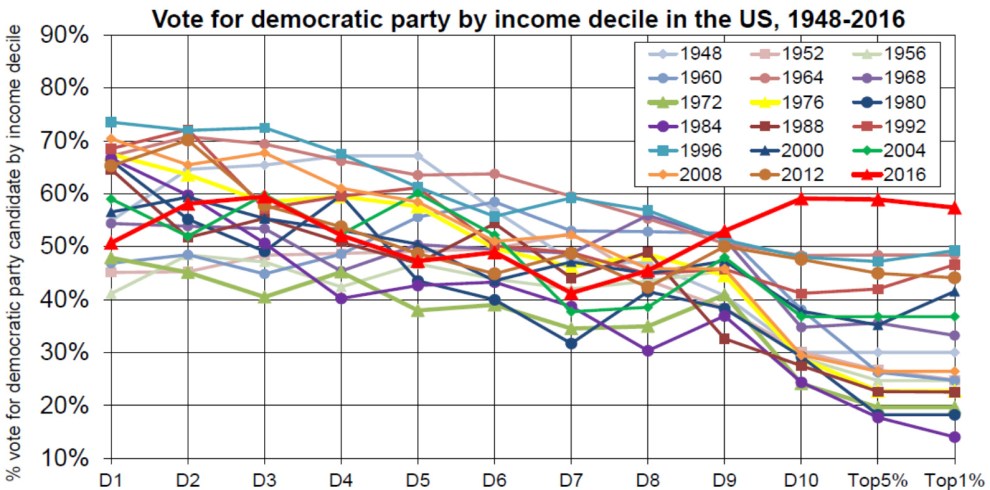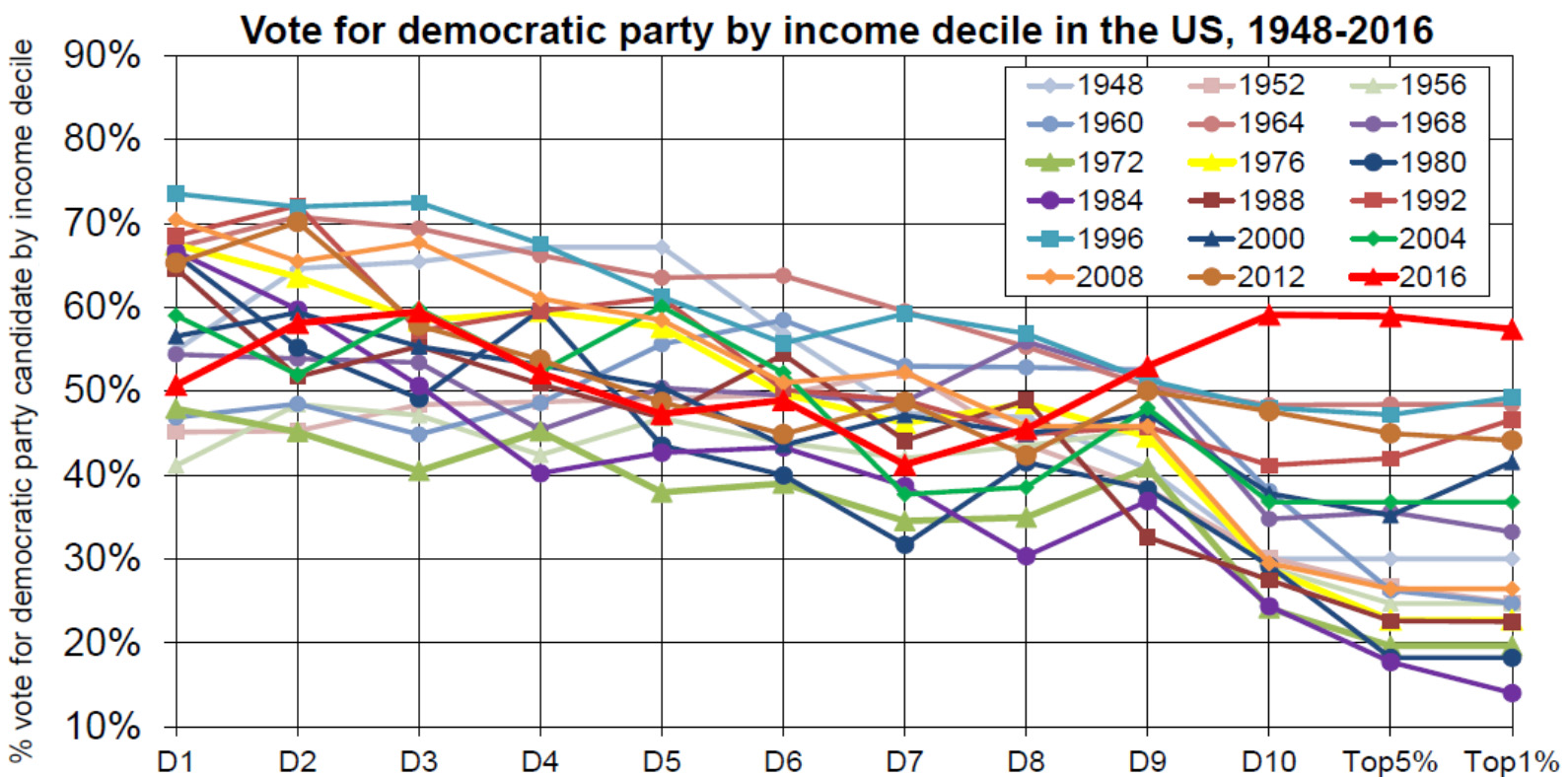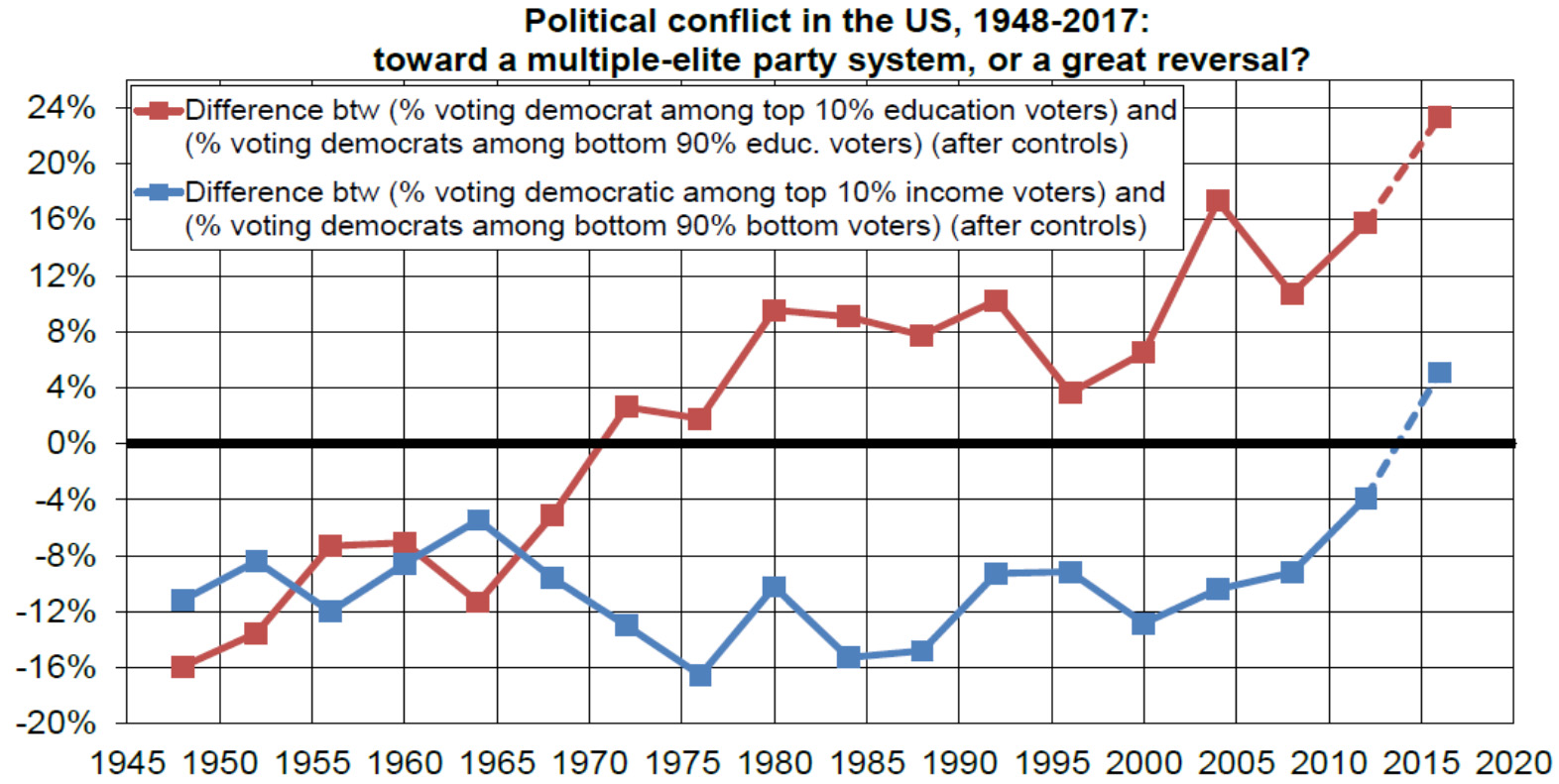
Via Tyler Cowen, here are a couple of interesting charts from Thomas Piketty about voting patterns in the US. Generally speaking, poor and working-class folks vote for Democrats, while more affluent people vote for Republicans. But 2016 was an odd outlier:

There’s a big range here, but in general the richer you are the more likely you are to vote for a Republican. That’s held true in every single presidential election since 1948—until you get to 2016. In that year, the top two income deciles (D9 and D10) suddenly diverged from their usual historical pattern and voted for Democrats by about 30 points more than they should have.
30 points! That’s a huge divergence from the norm, and it holds up even at the very tippy top of the income ladder. The upper middle class and the rich like Donald Trump way, way less than they like the average Republican.
I’m not entirely sure what to make of this, aside from the fact that maybe this is the wrong time for Democrats to suddenly decide they don’t want to fundraise from rich people. But it’s worth pondering.
And as long as we’re looking at this stuff, here’s another chart showing one of the ways that voting patterns have changed:

As you can see, high-income voters have historically favored Republicans by about 12 points, and that’s remained constant until very recently. The big change has been education. In 1948, highly-educated voters preferred Republicans by 16 points. That’s changed pretty steadily, and in the 2016 election highly-educated voters preferred Democrats by 24 points. That’s a swing of 40 points.
In case you haven’t noticed, we are having a meritocracy moment right now, and it’s a bit of a paradox. The consensus among liberals is that the meritocracy is bad, but increasingly liberals make up most of the meritocracy. I have a football game to watch right now,¹ so I’ll leave comment on this for later. But it’s worth thinking about.
¹A very egalitarian sport! OTOH, I’ll be rooting for USC, a very elite school. Contradictions and paradoxes are everywhere.















